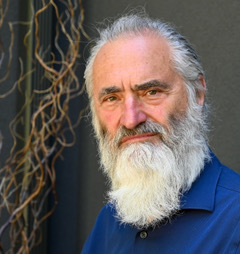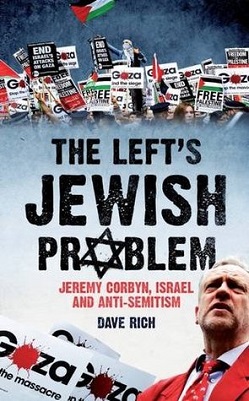Antisemitism is hostility to, prejudice towards, or discrimination against Jews. This sentiment is a form of racism, and a person who harbours it is called an antisemite. Though antisemitism is overwhelmingly perpetrated by non-Jews, it may occasionally be perpetrated by Jews in a phenomenon known as auto-antisemitism. Primarily, antisemitic tendencies may be motivated by negative sentiment towards Jews as a people or by negative sentiment towards Jews with regard to Judaism. In the former case, usually presented as racial antisemitism, a person's hostility is driven by the belief that Jews constitute a distinct race with inherent traits or characteristics that are repulsive or inferior to the preferred traits or characteristics within that person's society. In the latter case, known as religious antisemitism, a person's hostility is driven by their religion's perception of Jews and Judaism, typically encompassing doctrines of supersession that expect or demand Jews to turn away from Judaism and submit to the religion presenting itself as Judaism's successor faith—this is a common theme within the other Abrahamic religions. The development of racial and religious antisemitism has historically been encouraged by anti-Judaism, though the concept itself is distinct from antisemitism.

Arthur Kenneth Chesterton was a British far-right journalist and political activist. From 1933 to 1938, he was a member of the British Union of Fascists (BUF). Disillusioned with Oswald Mosley, he left the BUF in 1938. Chesterton established the League of Empire Loyalists in 1954, which merged with a short-lived British National Party in 1967 to become the National Front. He founded and edited the magazine Candour in 1954 as the successor of Truth, of which he had been co-editor.
David Cesarani was a British historian who specialised in Jewish history, especially the Holocaust. He also wrote several biographies, including Arthur Koestler: The Homeless Mind (1998).

Brian Klug is Honorary Fellow in Social Philosophy at Campion Hall, Oxford and an emeritus member of the philosophy faculty at Oxford University. He is also an honorary fellow of the Parkes Institute for the Study of Jewish/non-Jewish Relations, University of Southampton and fellow of the College, Saint Xavier University, Chicago.

Henri Tajfel was a Polish social psychologist, best known for his pioneering work on the cognitive aspects of prejudice and social identity theory, as well as being one of the founders of the European Association of Experimental Social Psychology.
The anti-Jewish violence in Central and Eastern Europe following the retreat of Nazi German occupational forces and the arrival of the Soviet Red Army – during the latter stages of World War II – was linked in part to postwar anarchy and economic chaos exacerbated by the Stalinist policies imposed across the territories of expanded Soviet republics and new satellite countries. The anti-semitic attacks had become frequent in Soviet towns ravaged by war; at the marketplaces, in depleted stores, in schools, and even at state enterprises. Protest letters were sent to Moscow from numerous Russian, Ukrainian and Belarusian towns by the Jewish Anti-Fascist Committee involved in documenting the Holocaust.
Gavriel David Rosenfeld is President of the Center for Jewish History in New York City and Professor of History at Fairfield University. His areas of academic specialization include the history of Nazi Germany, memory studies, and counterfactual history. He is an editor of The Journal of Holocaust Research and edits the blog, The Counterfactual History Review, which features news, analysis, and commentary from the world of counterfactual and alternate history.
The 1934 Thrace pogroms refers to a series of violent attacks against Jewish citizens of Turkey in June and July 1934 in the Thrace region of Turkey. One of the main crucial factors behind the events was the Resettlement Law passed by the Turkish Assembly on 14 June 1934.
Antony Lerman is a British writer who specialises in the study of antisemitism, the Israeli–Palestinian conflict, multiculturalism, and the place of religion in society. From 2006 to early 2009, he was Director of the Institute for Jewish Policy Research, a think tank on issues affecting Jewish communities in Europe. From December 1999 to 2006, he was Chief Executive of the Hanadiv Charitable Foundation, renamed the Rothschild Foundation Europe in 2007. He is a founding member of the Jewish Forum for Justice and Human Rights, and a former editor of Patterns of Prejudice, a quarterly academic journal focusing on the sociology of race and ethnicity.
Yael S. Feldman is an American cultural historian and literary critic. She is particularly known for her work in comparative literature and feminist Hebrew literary criticism. Feldman is known for her research on Hebrew culture, history of ideas, gender and cultural studies, and psychoanalytic criticism. She is currently the Abraham I. Katsh Professor Emerita of Hebrew Culture and Education in the Judaic Studies Department at New York University and an affiliated professor of Comparative Literature and Gender Studies. She is also a fellow of the American Academy for Jewish Research, and a visiting fellow at Wolfson College, Cambridge.

Ivan Kalmar is a Canadian professor.
Jonathan Judaken was the Spence L. Wilson Chair in Humanities at Rhodes College. Judaken previously taught at the University of Memphis where he was the Dunavant Professor of History and Director of the Marcus Orr Center for the Humanities. His fields of expertise include European cultural and intellectual history, discussions of Jews and Judaism, race and racism, and post-Holocaust French philosophy. Judaken is a notable scholar of Jean-Paul Sartre and Sartre's relationship to Jews and Judaism and race and racism, as well as contemporary French Jewish philosophers.
Since World War II, antisemitic prejudice in Italy has seldom taken on aggressive forms.
Antisemitism in contemporary Hungary principally takes the form of negative stereotypes relating to Jews, although historically it manifested itself more violently. Studies show antisemitism has become more prevalent since the fall of Communism, particularly among the younger generations. Surveys performed from 2009 and beyond have consistently found high levels of antisemitic feelings amongst the general population.

The sociology of Jewry involves the application of sociological theory and method to the study of the Jewish people and the Jewish religion. Sociologists are concerned with the social patterns within Jewish groups and communities; American Jewry, Israeli Jews and Jewish life in the diaspora. Sociological studies of the Jewish religion include religious membership, ritual and denominational patterns. Notable journals include Jewish Social Studies, The Jewish Journal of Sociology and Contemporary Jewry.

The Left's Jewish Problem: Jeremy Corbyn, Israel and Anti‑Semitism is a 2016 book by Dave Rich. The book argues that new antisemitism is "masked as anti-Zionism" in left-wing politics.
The Nature of Prejudice is a 1954 social psychology book by American psychologist Gordon Allport, on the topic of prejudice.

Joanna Sabina Tokarska-Bakir is a Polish cultural anthropologist, literary scholar, and religious studies scholar. She is a full professor and chair of the ethnic and national relations study at the Polish Academy of Sciences's Institute of Slavic Studies. She specializes in blood libel, historical anthropology and in particular violence, and Holocaust ethnography.
Nationen was a weekly fascist newspaper which was in circulation in the period 1925–1941. During its lifetime the paper was the most popular and most read anti-semitic publication in Sweden.
Anti-antisemitism is opposition to antisemitism or prejudice against Jews, and just like the history of antisemitism, the history of anti-antisemitism is long and multifaceted. According to historian Omer Bartov, political controversies around antisemitism involve "those who see the world through an antisemitic prism, for whom everything that has gone wrong with the world, or with their personal lives, is the fault of the Jews; and those who see the world through an anti-antisemitic prism, for whom every critical observation of Jews as individuals or as a community, or, most crucially, of the state of Israel, is inherently antisemitic". It is disputed whether or not anti-antisemitism is synonymous with philosemitism, but anti-antisemitism often includes the "imaginary and symbolic idealization of ‘the Jew’" which is similar to philosemitism.






